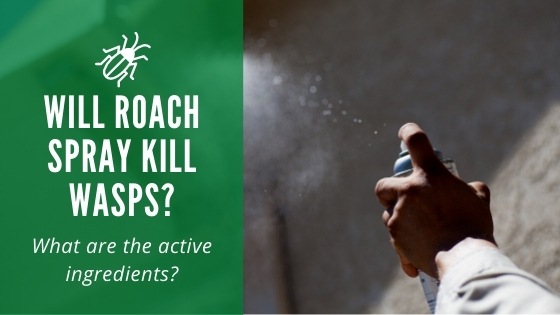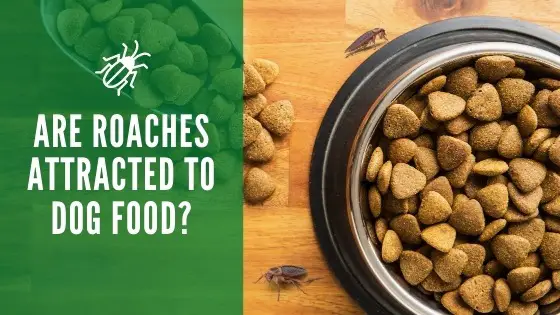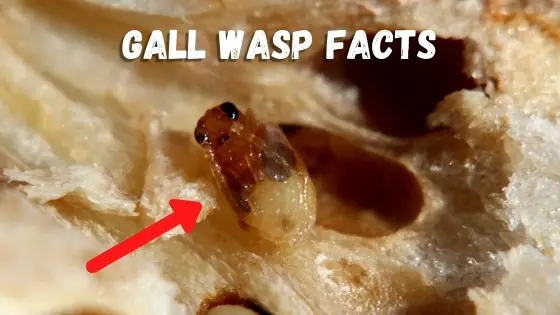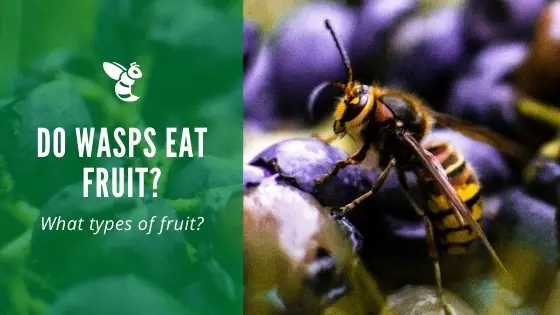Will Roach Spray Kill Wasps?

Whenever you are dealing with bugs, you often have an assortment of sprays, traps, and pesticides in your house to get rid of them once and for you. You might look at this collection and wonder if it is all really necessary? Do you need different sprays and items to handle different bug types, or is bug spray more of a one size fits all type of thing? Can a roach spray kill wasps, for example?
Most roach sprays can do the job of wasp killing, but why? Well, it has to do with the roach spray active ingredients.
What’s In Pesticides?
What makes a pesticide so effective against your common garden variety pests? It all comes down to what is inside the can, pellet, or spray and why those ingredients work against bugs. Most pesticides contain two chemicals: pyrethroids and pyrethrin. These chemicals are both found in plants and have strong insecticide properties. So wasp sprays active ingredients and roach spray active ingredients should contain some of the same ingredients.
They work by targeting the nervous systems of the insects they spray. Once it connects with the skin of whatever bug you are spraying, both chemicals get right to work. Pyrethrins are the natural and organic compounds in nature, meaning that it is very effective on bugs and not toxic to humans. They are also biodegradable.
Pyrethroids are toxic to various forms of insecticide life, including bees, dragonflies, and either invertebrate. These chemicals are designed to paralyze and poison insects, and once the wasps are hit with this spray, their muscles seize up, and they drop from the sky. That’s why bugs tend to go still whenever you spray them with a spray, as their muscles contract and they drop.
One key difference between Raid roach sprays vs. wasp spray is that roach sprays lack the wasp spray shooting distance. Wasp spray aerosol cans are designed to cover longer distances so that the sprayer can kill the wasps and other insects like spiders from a safe distance.
What To Look For in Wasp and Roach Sprays Like Raid
Pyrethroids and pyrethrins are both classes of substances, not substances in themselves. Your friendly bottle of Raid Ant and Roach Spray won’t say that, but it will have these ingredients:
- Cypermethrin
- Prallethrin
- Tetramethrin
- Lambda
Any of these ingredients use these substance classes, and they should be on your roach and wasp pesticide before you buy it. If you don’t see these ingredients, you won’t have the best pest spray available.
Speed Is The Key
A good pesticide spray should be very fast and effective, especially for flying targets like wasps. One good shot of your spray should be enough to paralyze them and cause them to drop out of the sky. If the wasps can shrug off your first hit and make it back to their hive, it’s not a lost cause. The substances inside the spray are still working, and the wasps covered in it will spread it to other wasps in the nest.
If you manage to safely get close enough to the nest and spray directly into it, the nest will soak up the spray like a sponge. Then the wasps will become exposed to the spray in droves, and soon you won’t have a wasp problem anymore!
Will Roach Spray Kill Wasps?
Yes, as long as it contains the pyrethroids and pyrethrin that is present in all insecticides.
If cockroach spray doesn’t work and you can’t use wasp repellent, consider using essential oils and wasp traps as a makeshift solution. They’ll keep the wasps away until a professional can come and kill them.
Natural Ways For Getting Rid and Repelling Wasps
If you don’t like the idea of spraying pesticides in your yard or don’t want to risk your roach spray being ineffective against wasps, then there are some natural repellents you can try to take back your yard.
You can plant several aromatic herbs such as thyme, rosemary, and eucalyptus around your yard. You can even rub the crushed herbs on your skin because the wasps hate that smell, and they will turn tail the other way.
Essential oils can work the same way as bug spray, but they can be applied to exposed skin and clothing. According to a 2012 study, the following essential oils are very effective at repelling wasp: clove, pennyroyal, lemongrass, ylang ylang, spearmint, wintergreen, sage, rosemary, lavender, geranium, patchouli, citronella, Roman chamomile, thyme, fennel seed, anise, and peppermint.
You can dilute some of these essential oils in a spray bottle with water and spray yourself before going outside if you are concerned about getting stung.
There are also several wasp traps that you can employ, including homemade traps, that will lure wasps into a container and to their death. One of these traps involves using a water bottle filled with sugar and water. The wasp will go inside the bottle to get the sugar water, get wet, and eventually drown.
You can also buy or set up a ‘fake wasp nest’ in your yard with the shape of a real nest. Wasps won’t go near the nests of other wasps, so it’s an easy way to make sure they stay out of your yard.
Removing The Nest
If you want to cut the wasp problem off at its source, you need to hire a pest control professional. Getting stung by a swarm of wasps, even if you are not allergic to the wasps, is often something that will send you to the hospital. It could even wind up being fatal depending on how many times you are stung.
Pest control professionals have the tools and the training to protect themselves from social wasp stings. They can remove and dispose of the nest from various stinging insects, including yellow jackets, hornets, cicada killers, paper wasps, mud daubers, and many more.
It doesn’t matter if the nest is up in a tree, on the ground, or inside a wall. Professional pest controllers have seen every single scenario and will be able to remove your wasp nest and your wasp problem without any delay, giving you back your living space.
Do some research and let a local professional work with you to remove the nest, and you’ll be rid of the wasps for good.
Sources:
https://www.hunker.com/12196421/how-do-bug-sprays-work



